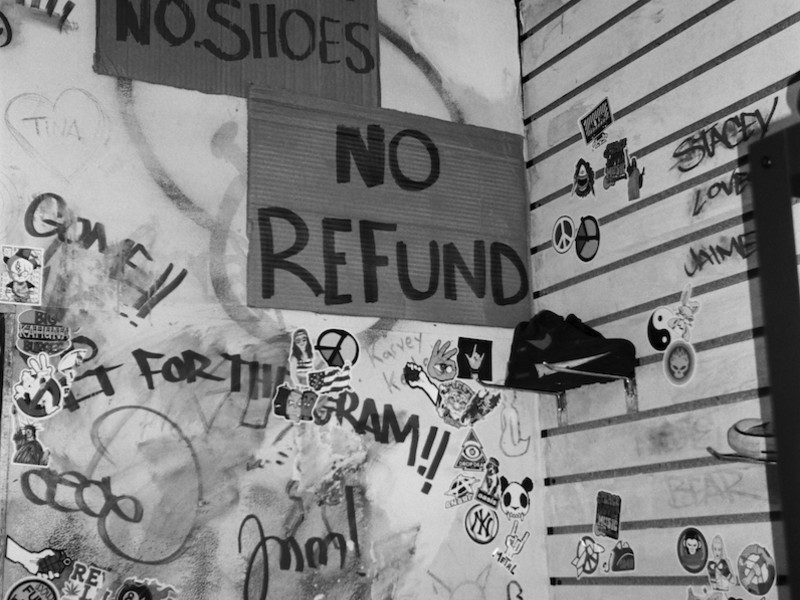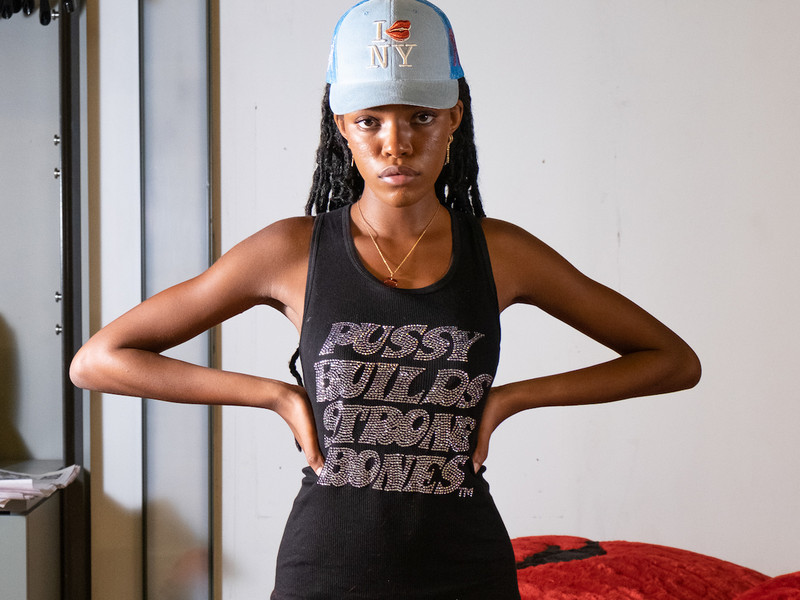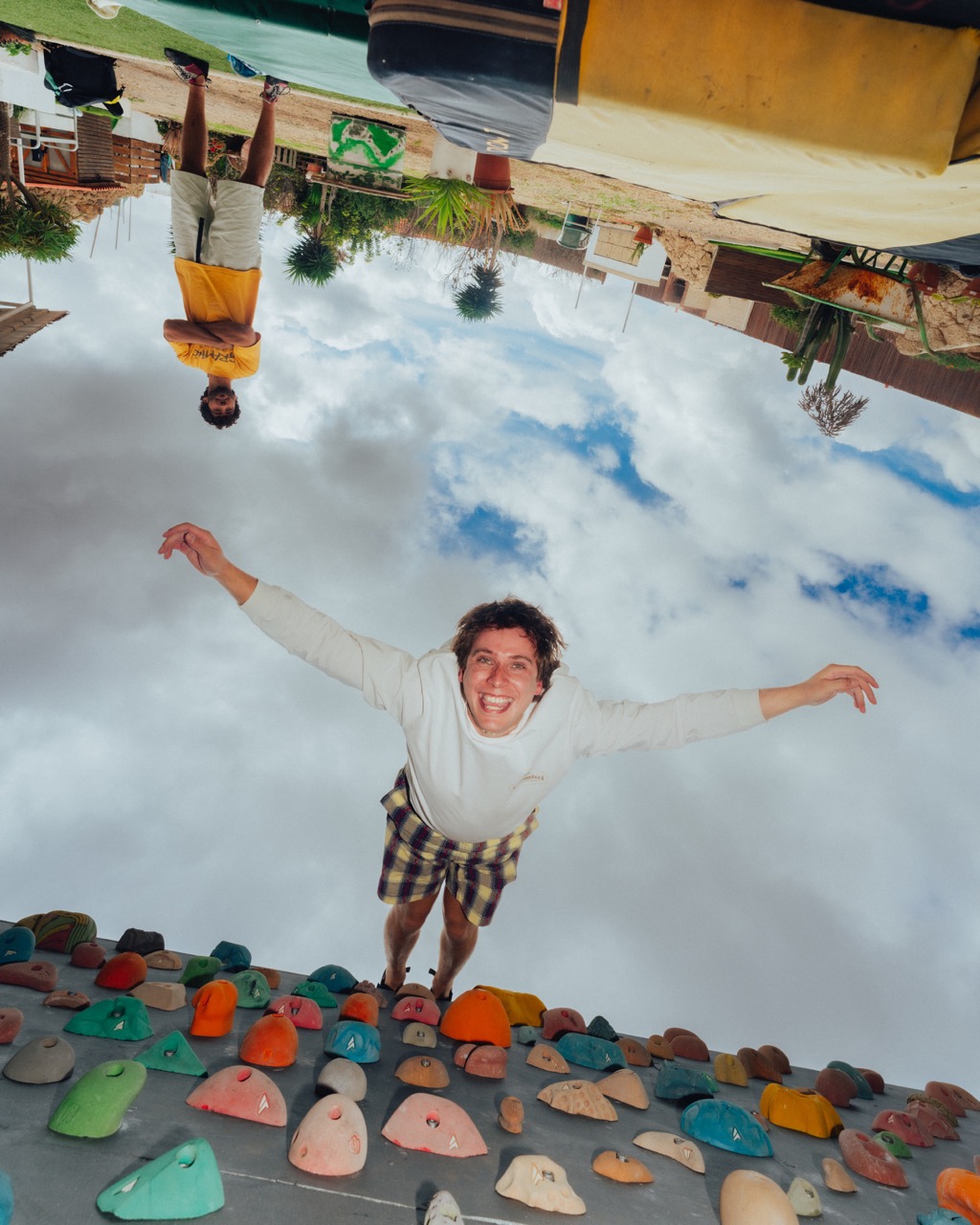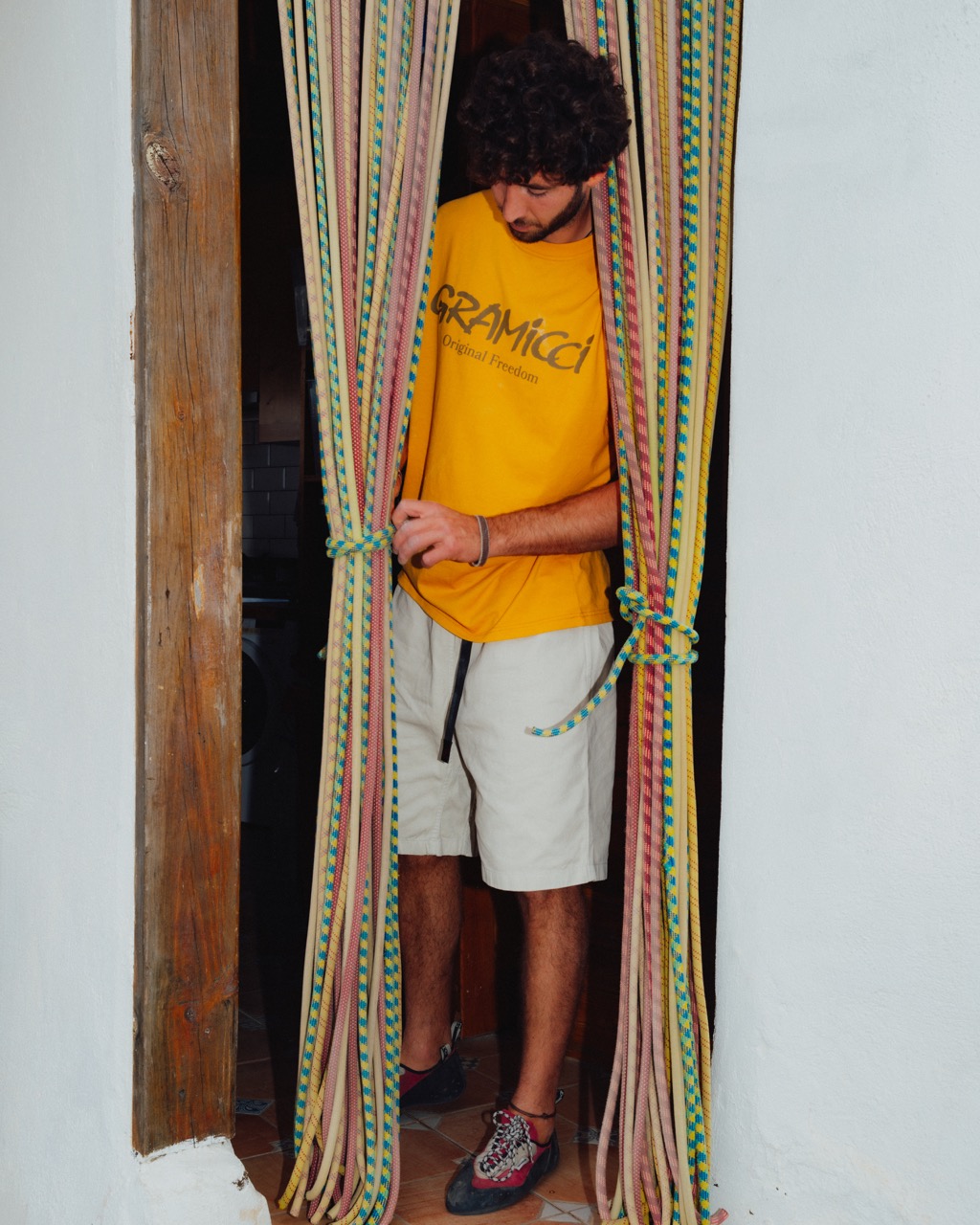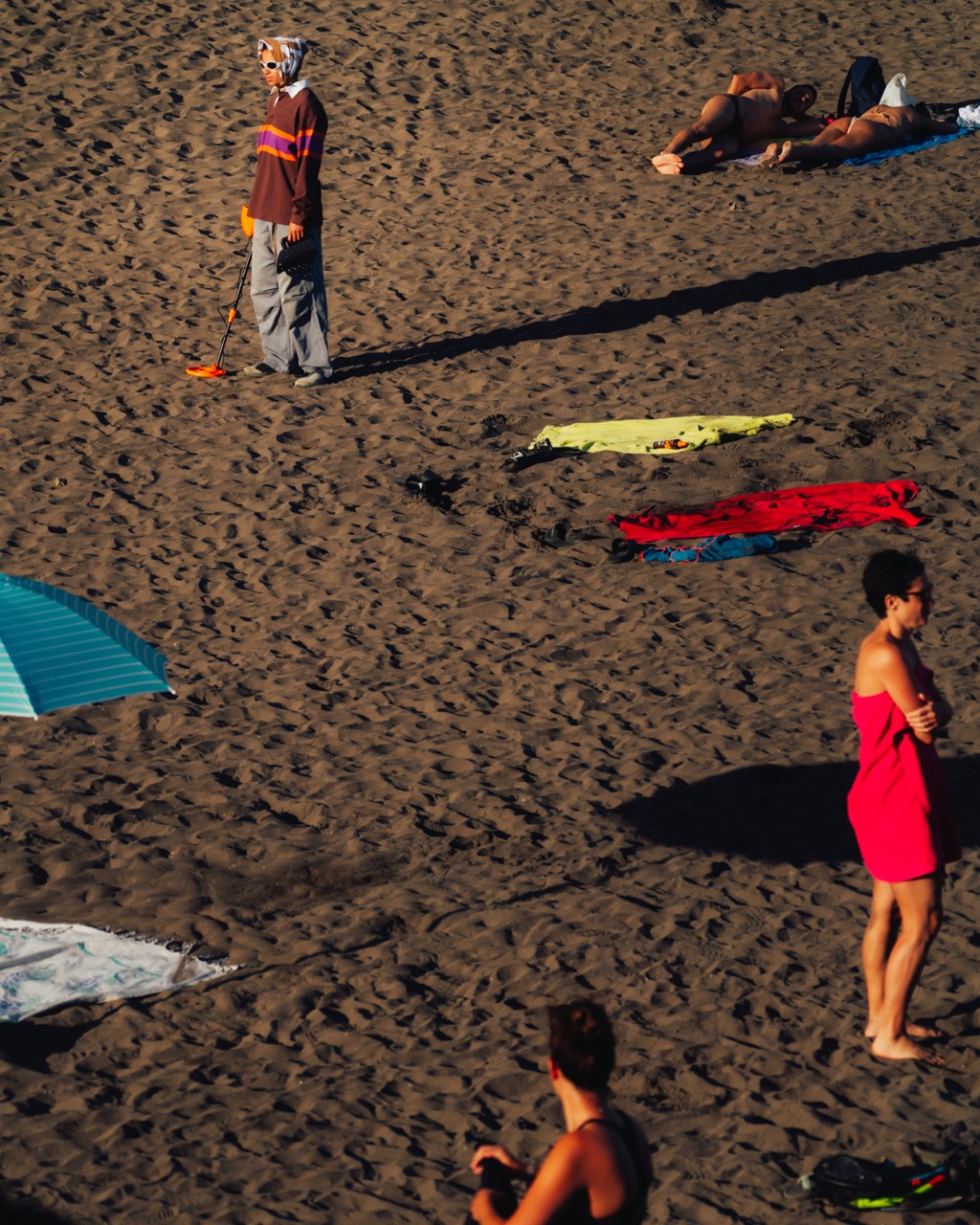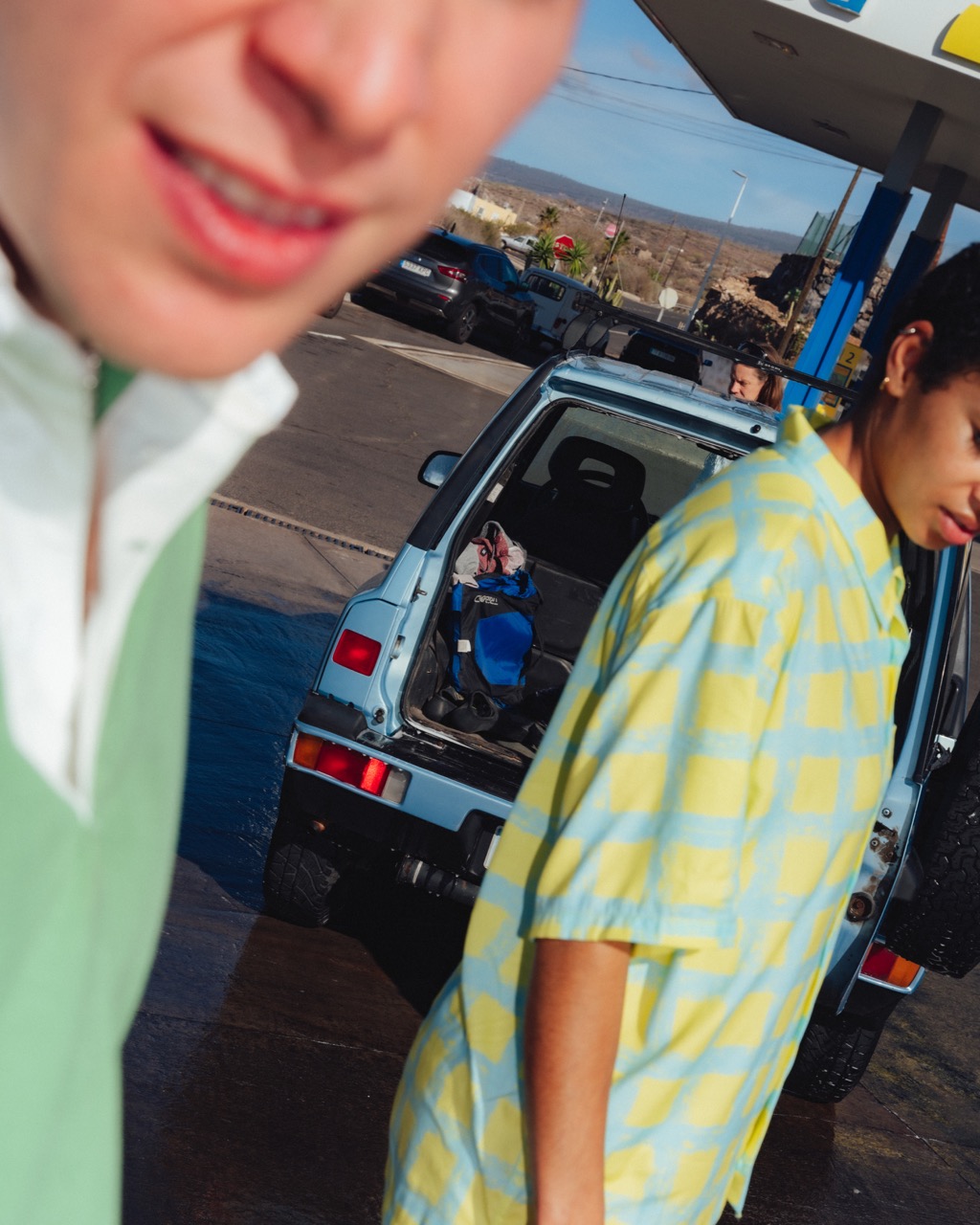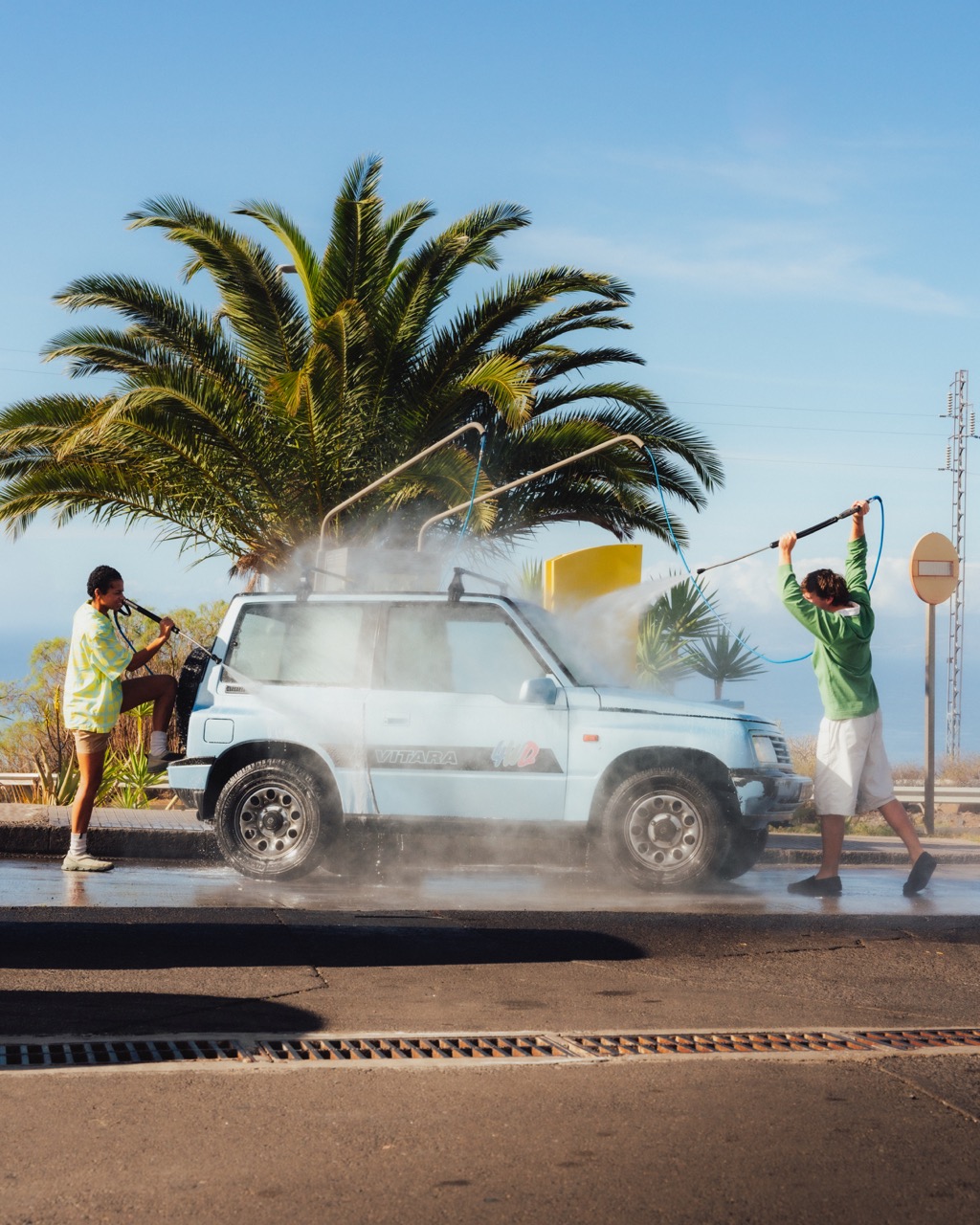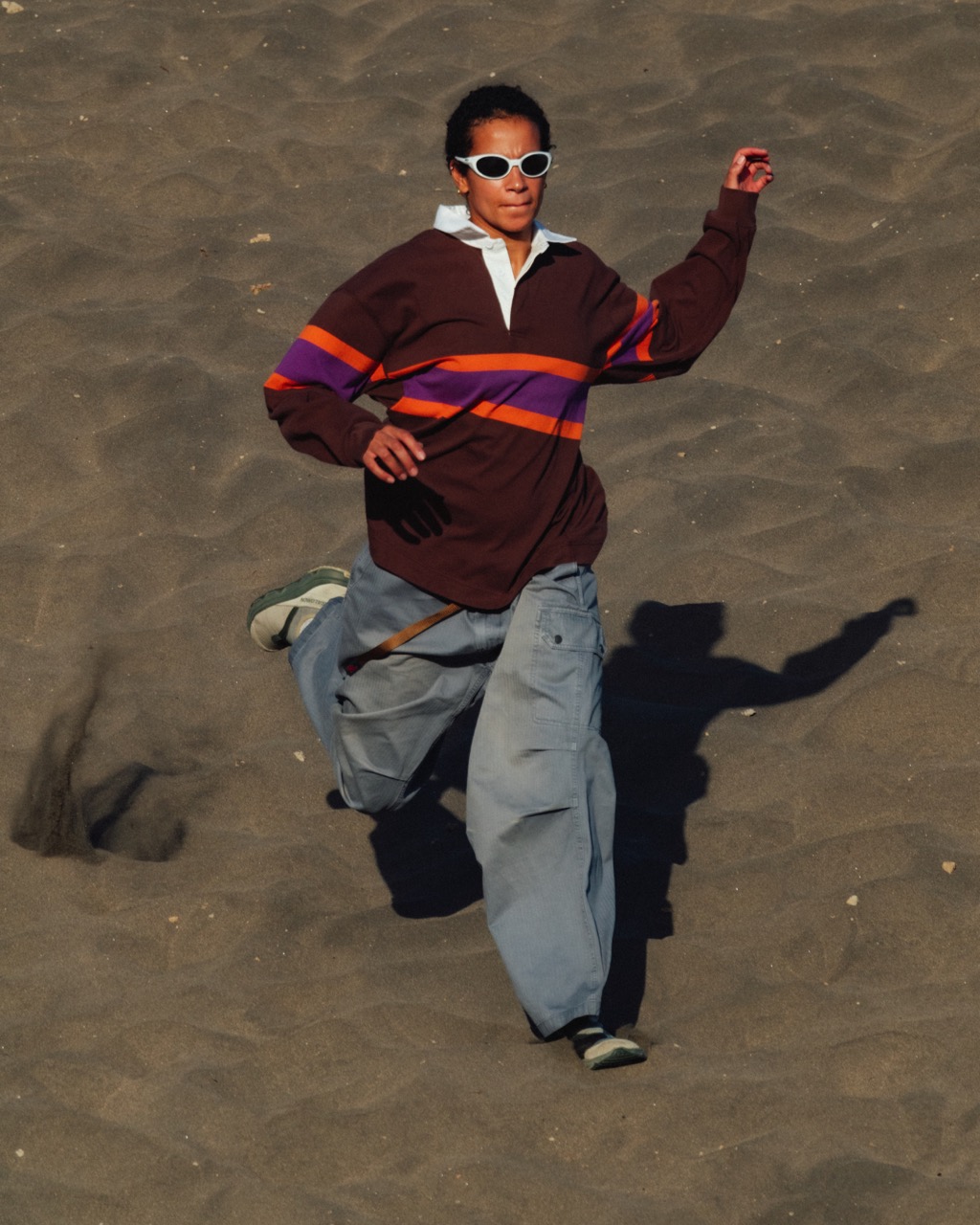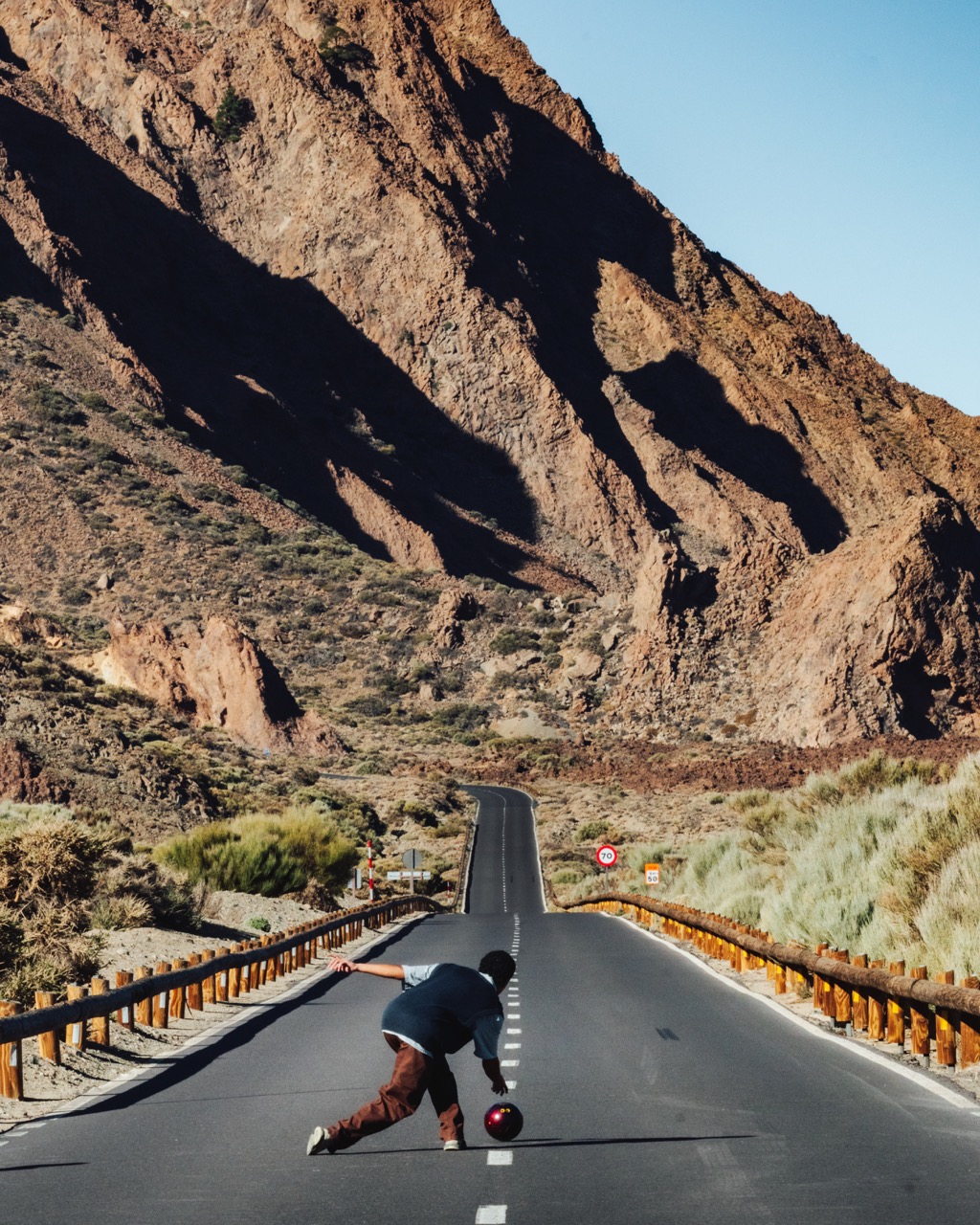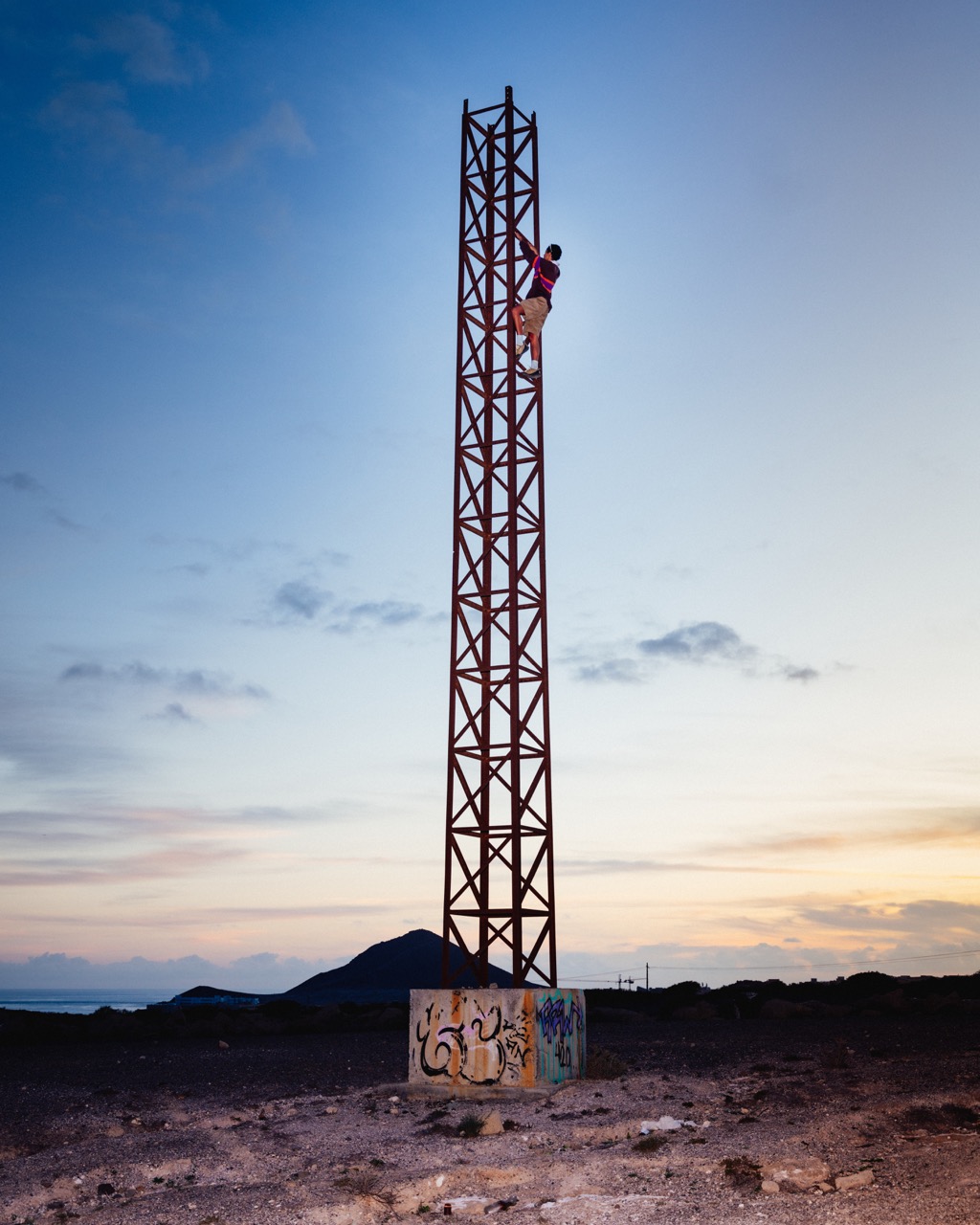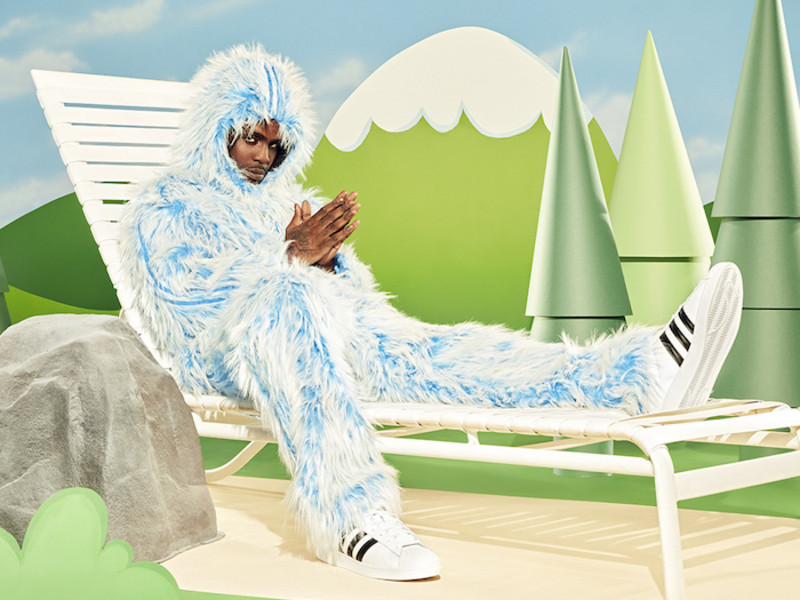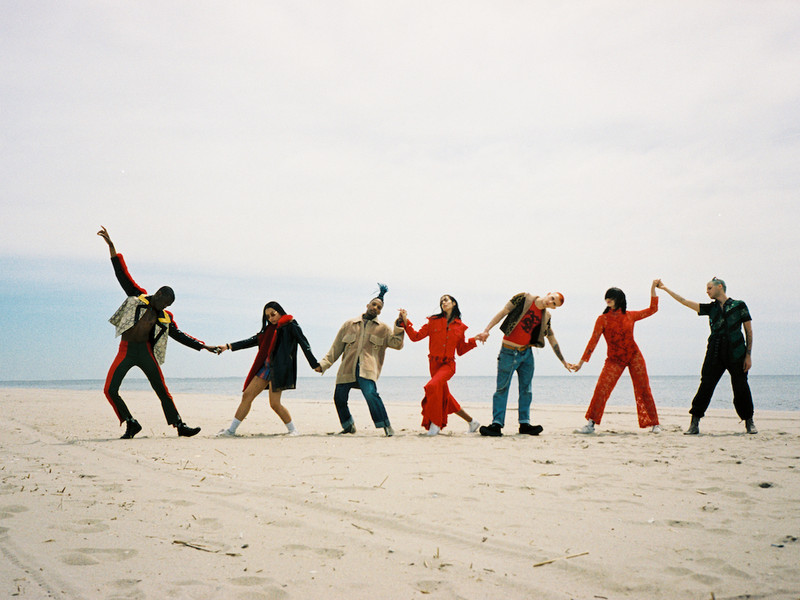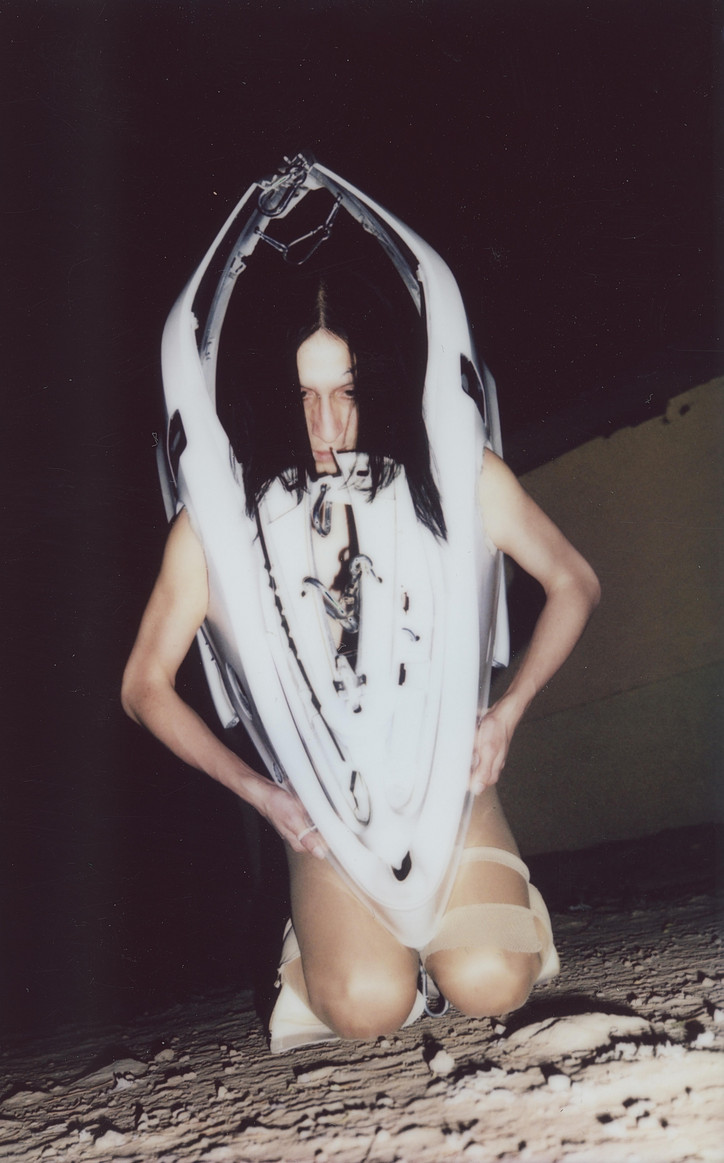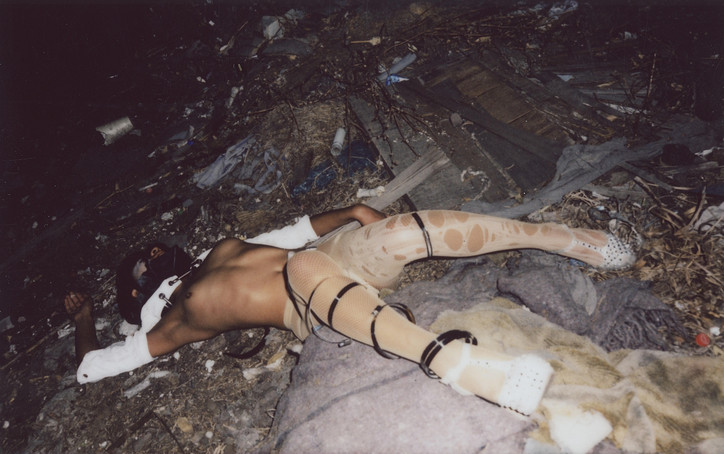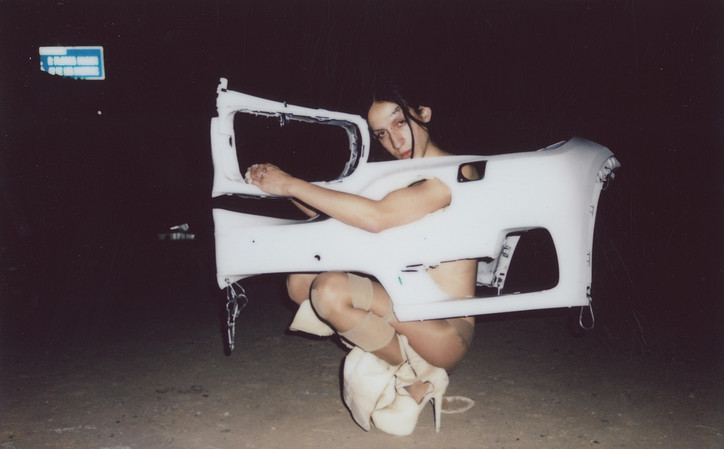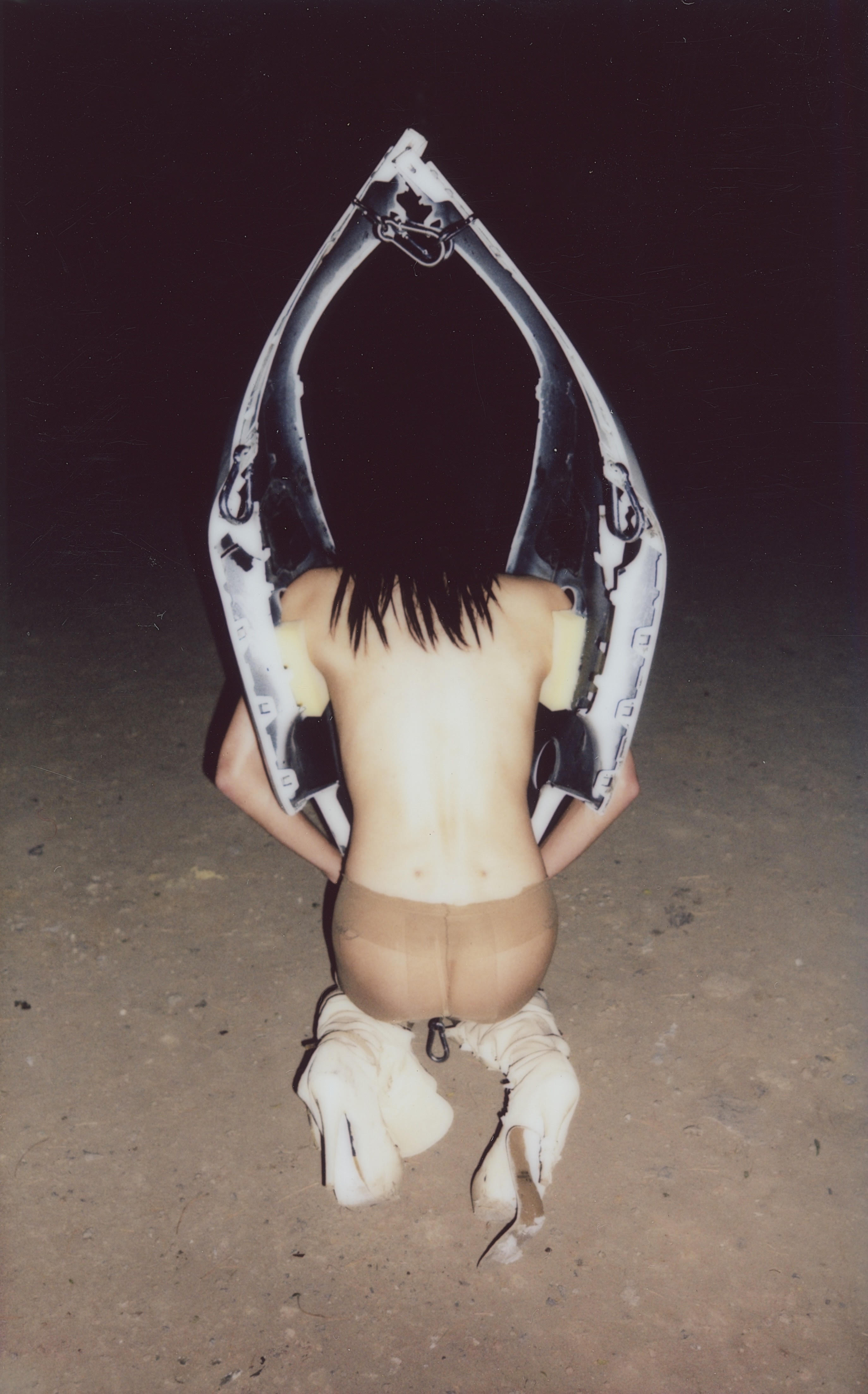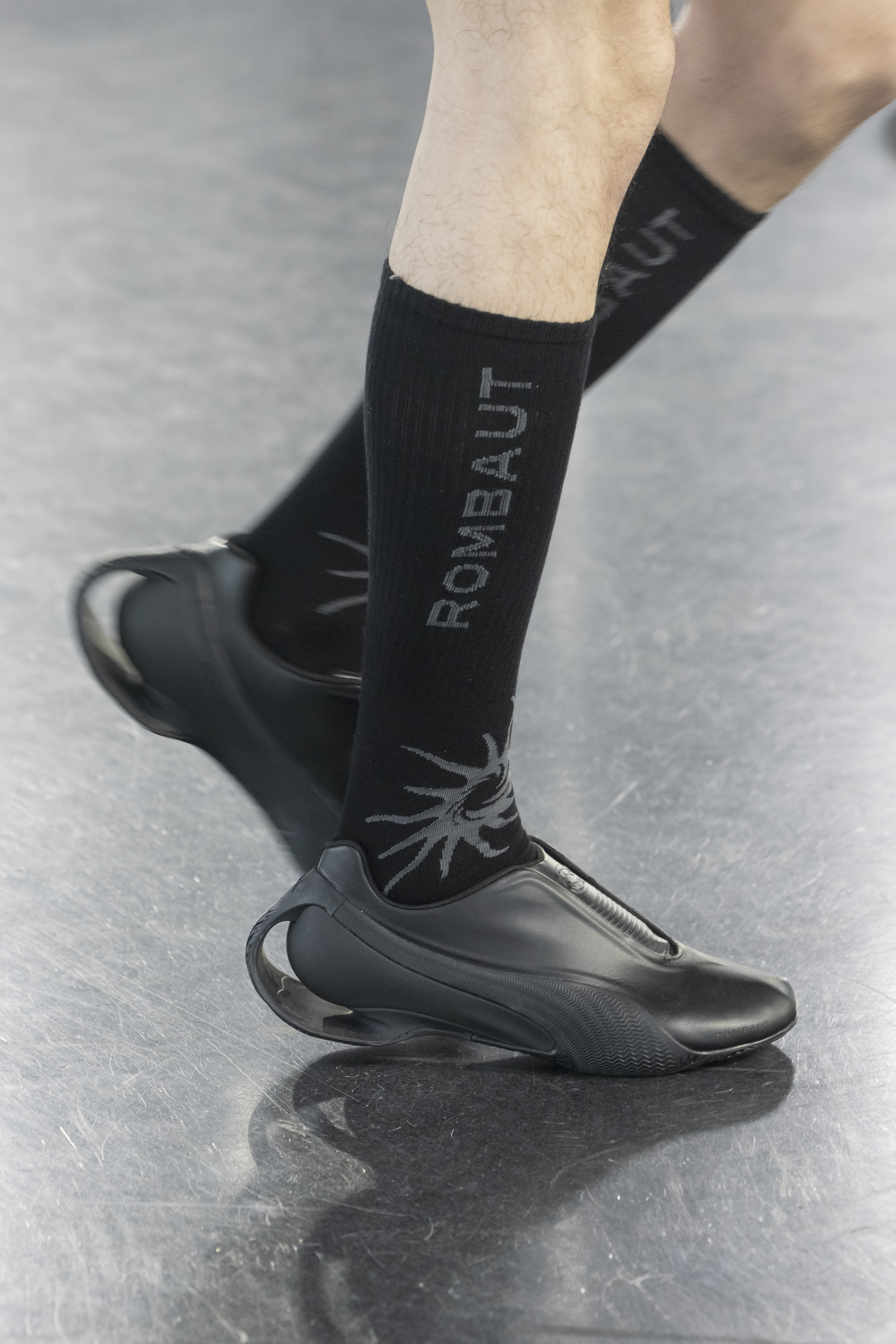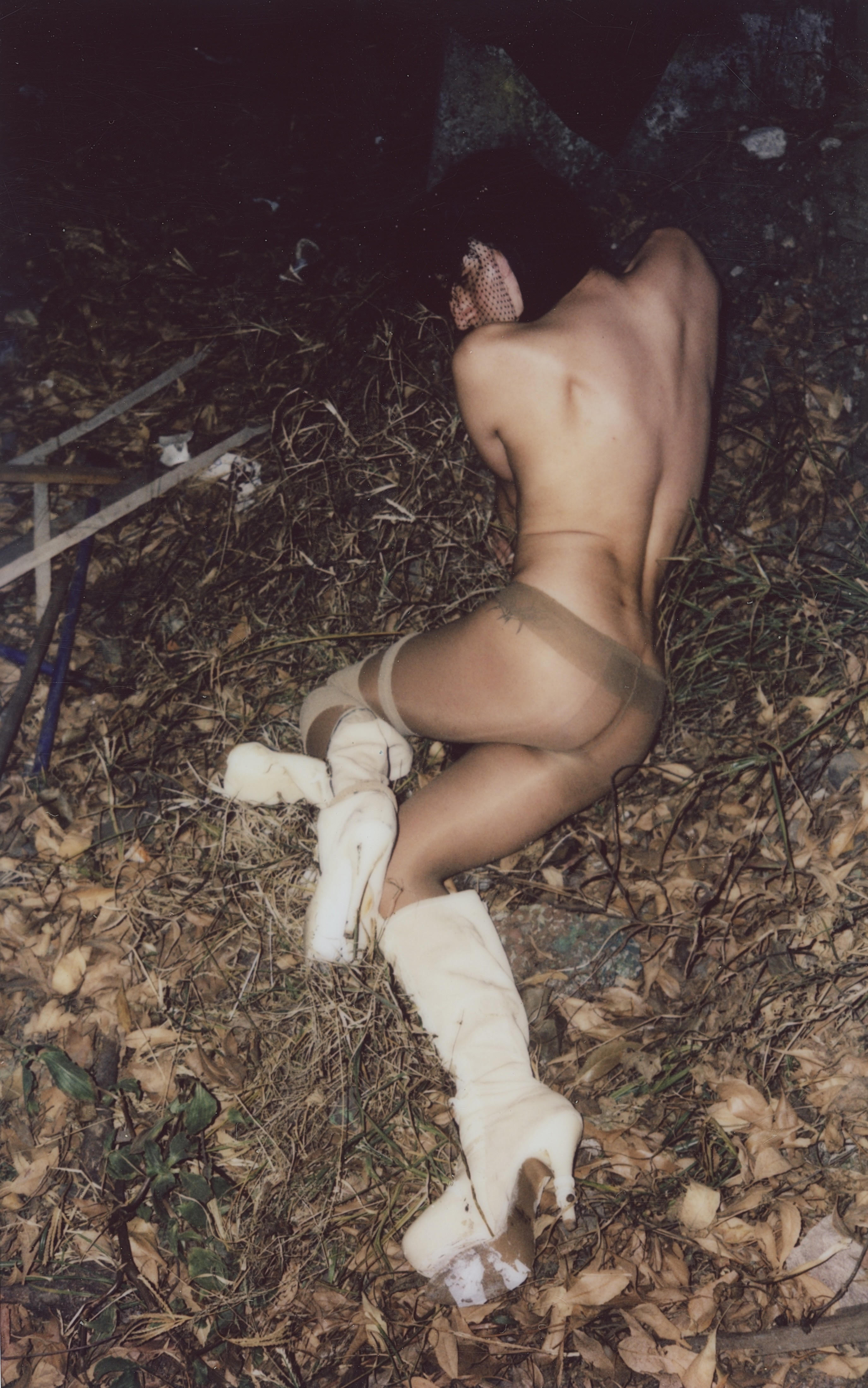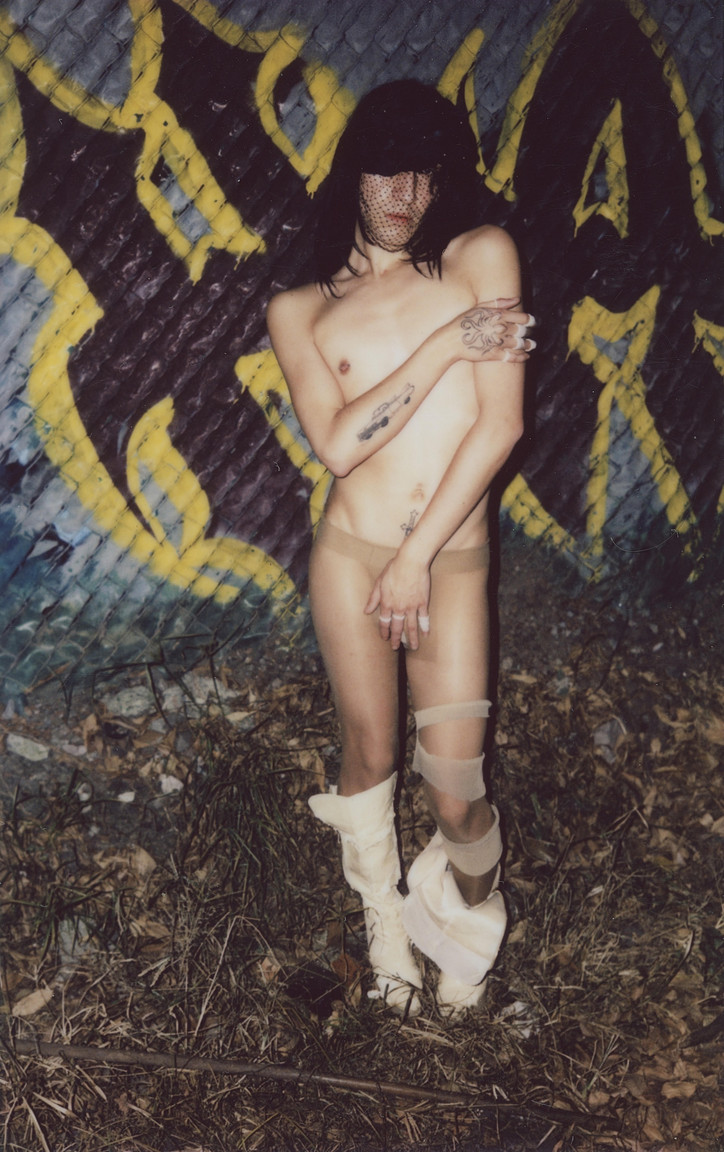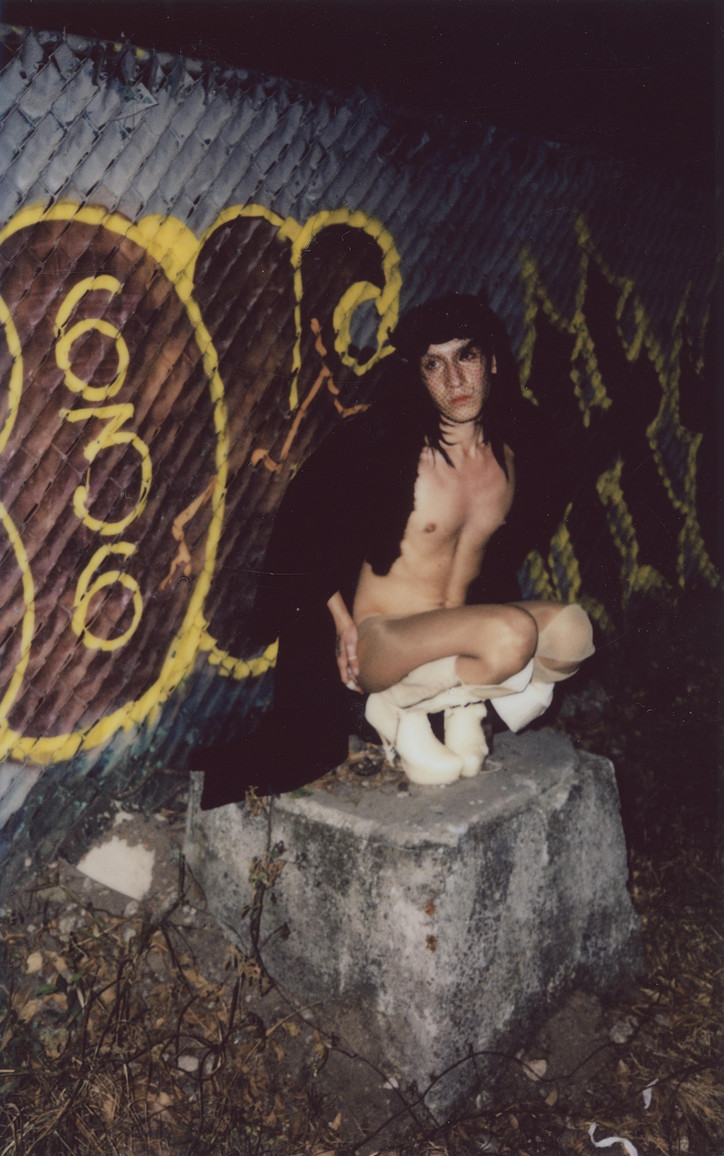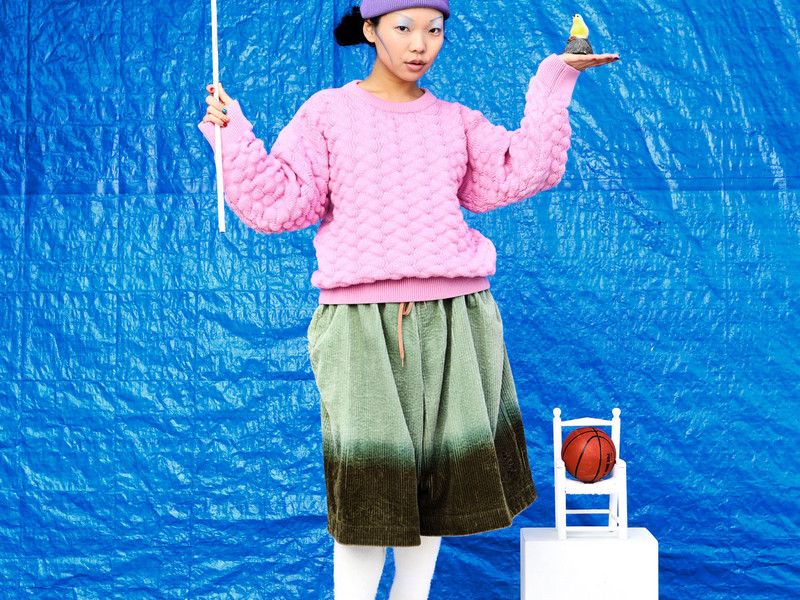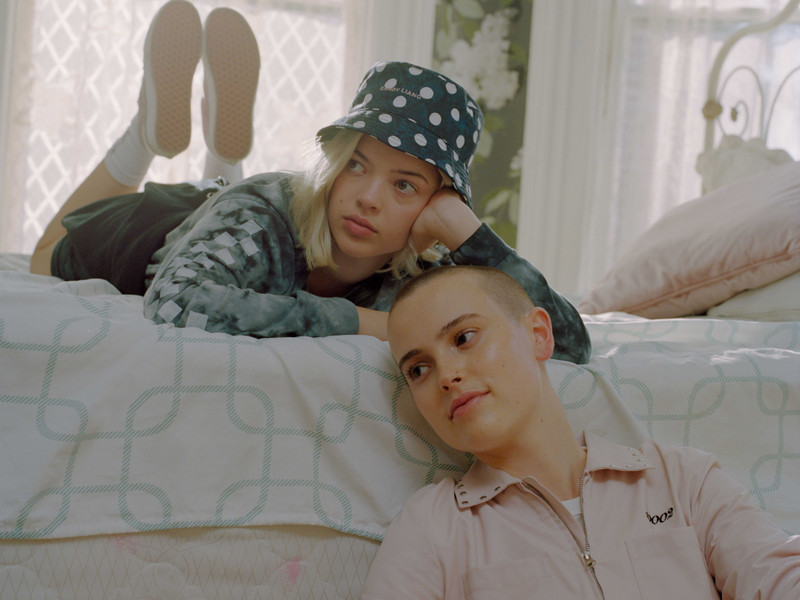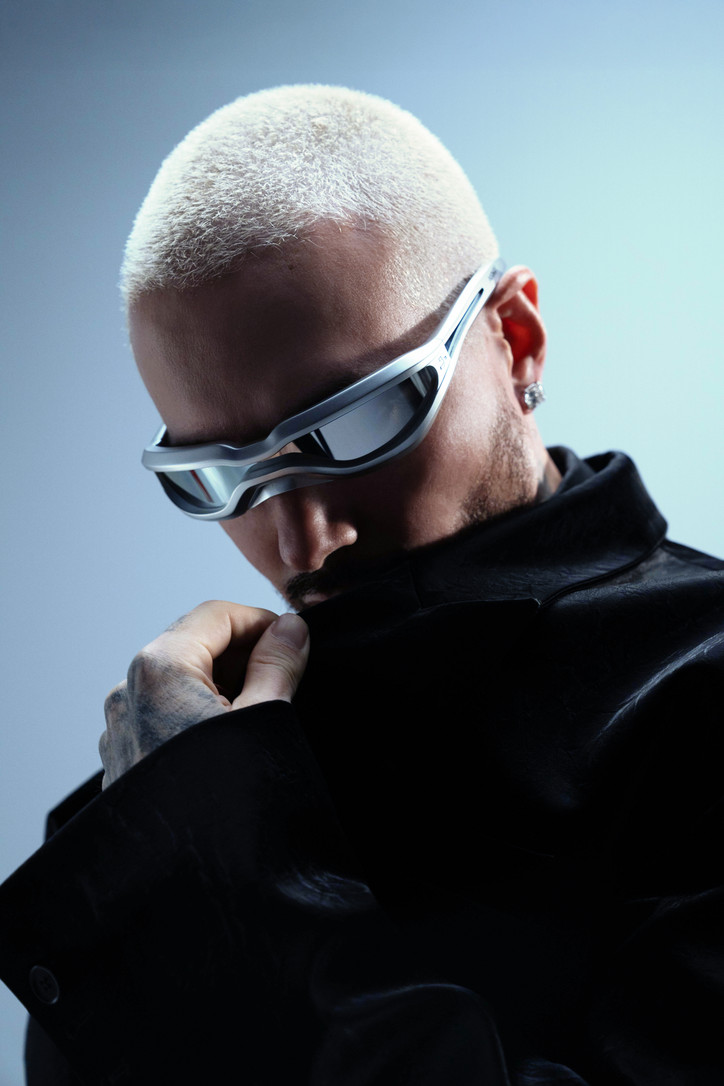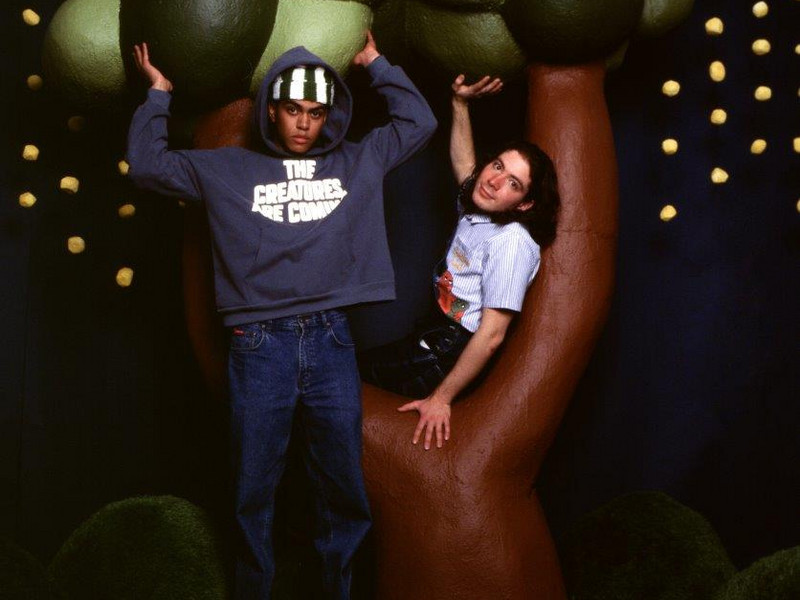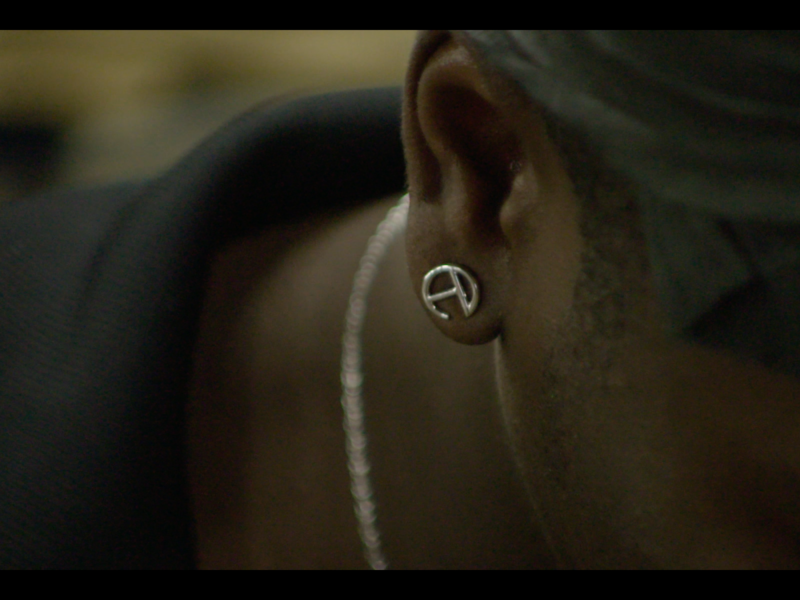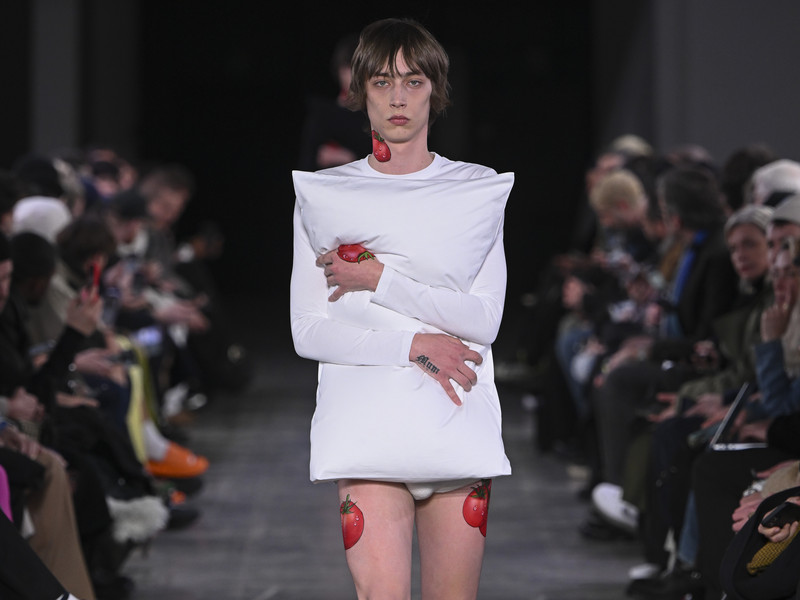Lucien Smith and Vivien Ramsay are Making Sustainability Necessary
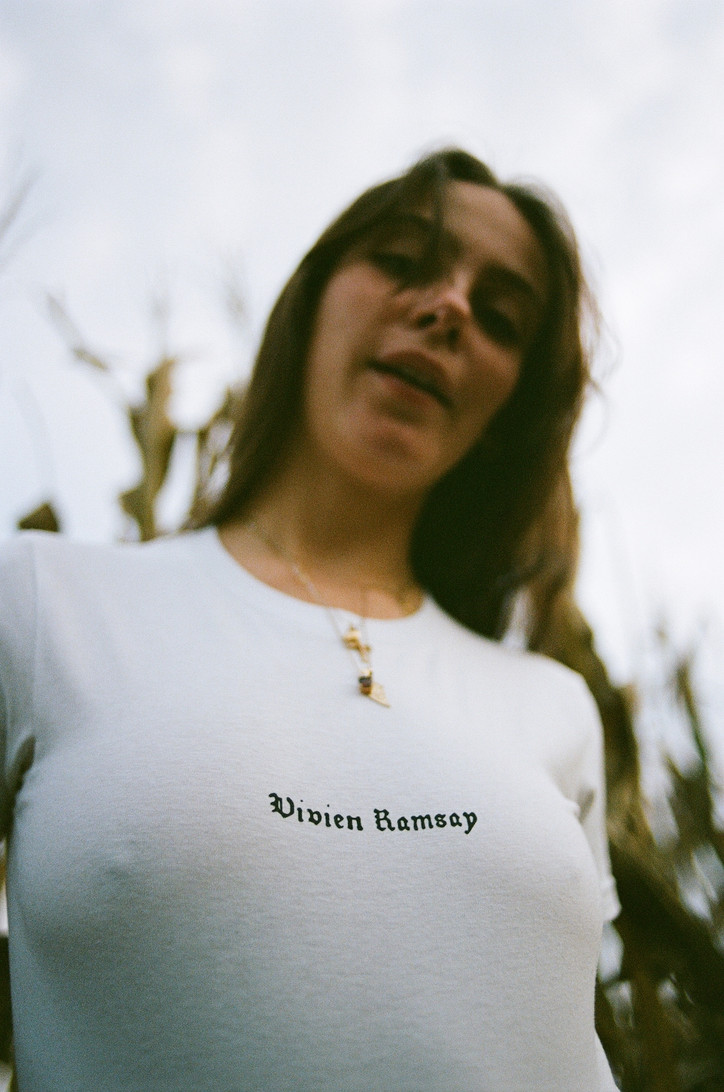
Besides being mother and son, how did you guys even get started on this project? What was the intention behind it?
Lucien Smith — I guess this kind of all started with my mom, she used to make my clothes as a kid and I used to hate that. I mean, she probably remembers more of the stuff she would make me, but like rainbow onesies, things that were like really hard to bring into school.
Vivien Ramsay — It wasn't all rainbow onesies Luc'. It was like Navy wool-like trousers, it wasn't all rainbow.
LS — But, I grew up kind of watching my mom go through the reins of the fashion industry. The first job I remember her having was for Todd Oldham in the nineties.
Right, but how did this start? Because besides being mother and son, how did you come together and create Vivien Ramsay?
VR — Right. I actually launched 'Vivien Ramsay' in 2014 on my own with my husband. And that was a full ready-to-wear collection, it was doing quite well. I mean, we were selling to about 200 stores worldwide, It was mostly in the United States and Japan. But then like a few years later, around late 2018, Lucien and I — Lucien has always been like kind of supporting me in every which way. He's always giving me insights into things and he would always have an opinion — which was very well taken. And it integrated already into what I was doing the whole time. And then one day he just said "I want to be the creative director for this." And that's how it started. It started about two and a half years ago, and it kind of came in very good timing because God knows we didn't know this [The pandemic] was going to happen. We already started thinking about how to actually edit down because we were so bored of the whole formula of fashion and ready-to-wear. And it just took everything out of us, really. It was no longer like this thing that was fun or all of a sudden not feeling relevant anymore. So we decided to pair it down and start from like the inside, which is the underwear. Before we even got to this point of tuning into a recycled cotton brief that can be worn by a man and a woman, we were doing a whole range of really beautiful organic lace and mesh underwear, bras, and panties.
LS — I think that me joining Vivien Ramsay kind of coincided along the same timeline as me sort of taking a step back from the fine arts and focusing more on like STP and community outreach. And what I was discovering from that time is that like some of the flaws and excessiveness in my industry, which was the fine art world, were mirrored in the music industry and the fashion industry, and so forth. And I saw my mom's brand as a great opportunity to maybe inject some of those insights into the fashion world. And so really what my main goal over the last few years was really to like as slowly like scale back a lot of what she was doing and try to refocus it on something that I thought that not only could be relevant but also necessary. And so creating a clothing brand is a tremendous undertaking alone, you know, creating or rebranding a brand that already exists Is like. I would say even more difficult. So in the last four years, my job has been really to deconstruct some of the original identity of the brand and sort of inject it with something that I think was socially conscious and ecologically conscious.
What qualities do you guys admire in each other that made you think this would be the perfect partnership?
LS — I would say our partnership is anything but perfect, but I think that's what creates such a dynamic there. You know, me and my mom are kind of always going at each other's throats, but I love my mom. We have a great relationship. And I think that it's an interesting one professionally because there is a level of comfortability there. You know, there isn't anything I can say to my mom that's not going to make her my mom, you know? So unlike a business partner, I can really like just say how I really feel and we figure out unconditional love. I think that's the thing that is binding us in our profession and what makes it such a unique experience.
VR — I think the strengths are— I guess that's equal to transparency. And also, I love working with Lucien because there's like this very defined tone of bravery which I really admire. It's kind of crazy because it's like I'm 20 years older than him. So, we have this two decade gap and there's definitely a lot of things that I'm not in tune to. And there's a lot of things that he also never went through. And what the two things combined, as well as my experience in a different situation, it's really nice. It's like a nice collage to fit together.

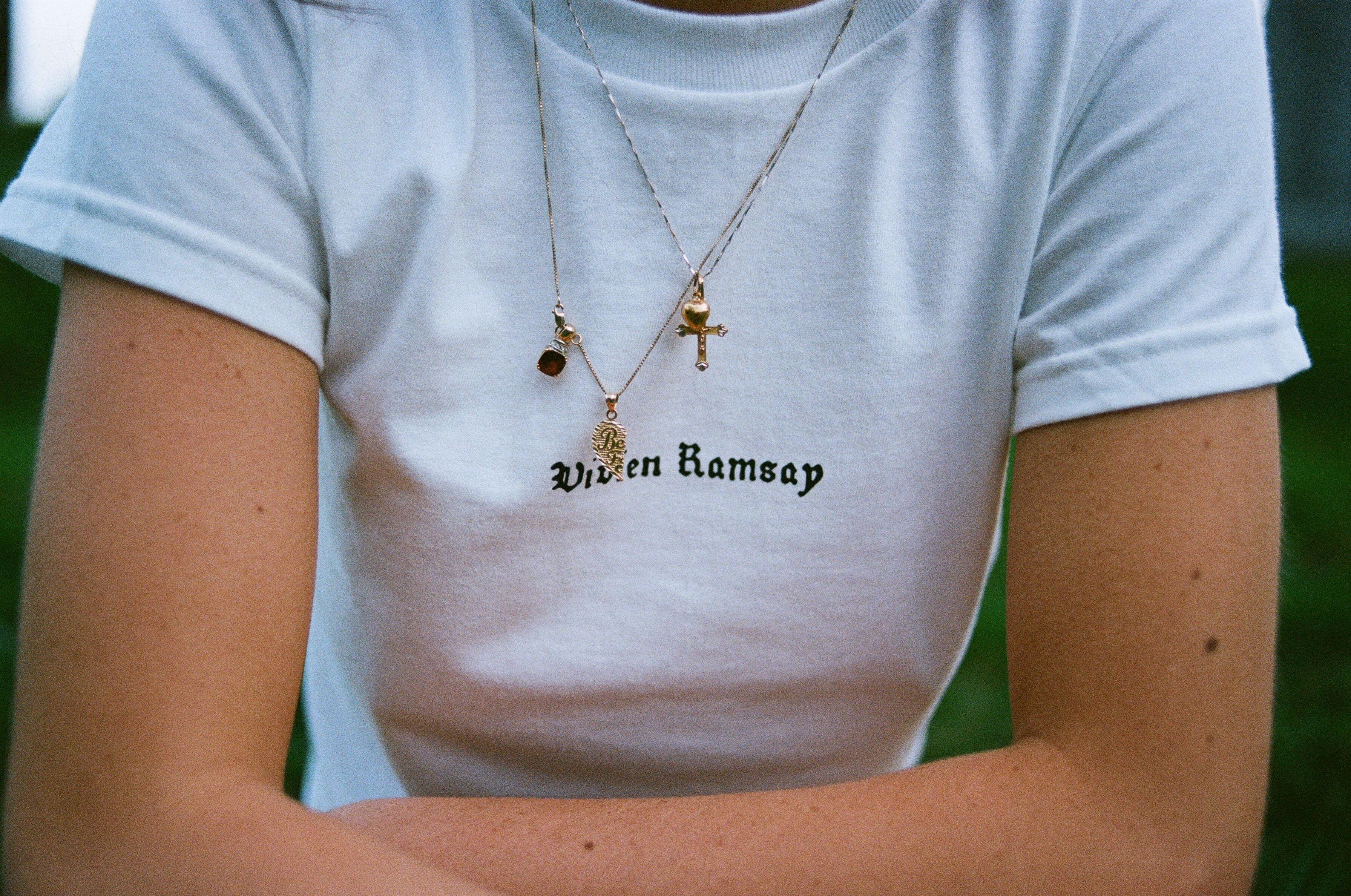
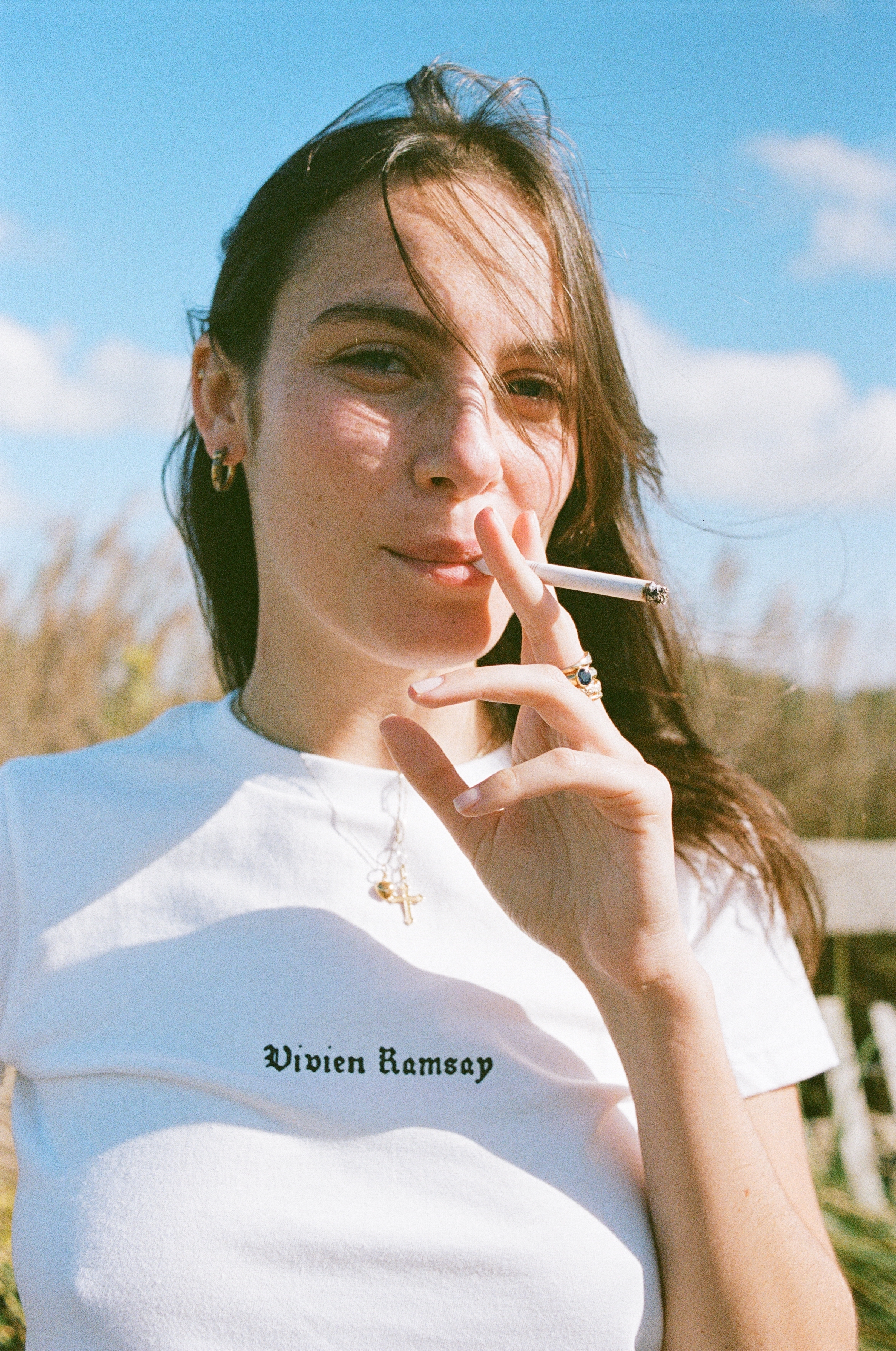

When having a lot of conversations about sustainability, mostly the conclusion is often like "Just don't make clothes, it's better to not produce clothes than to make sustainable ones." In a way, it's still just adding to the carbon footprint. What do you guys think about that?
LS — I mean, when you think about it, I don't need a Louis Vuitton jacket or Chanel purse, these are luxury goods. But I'm pretty sure all of us right now are wearing underwear and socks. And so those are the things that are just reoccurring and they're things that wear out. And so that's really like the focus, it's an essential article of clothing. I'm going to use that essential article, I'm going to use that platform as a way to sort of push out our other mission which is gender equality. And I think that makes a lot of sense to me. Yeah, If I was like making a luxury good in recycled cotton, I would maybe double think on what it is that I was doing and trying to achieve.
VR —Yeah. I mean, it's not just also the material, it also tips into like sourcing near location. For example, if you're going to be selling to the United States or Europe, you want to try to manufacture close to the location as supplied. So then everything is just right around the corner and you're not like jet fueling stuff from this continent to that continent. So that also plays into the equation of sustainability. And then there's the after, the post-consumer after you buy the product, what do you do with it? So this is another conversation that we have to think about, it's kind of gross to think about what do you do with old underwear. But, there was like one brand — I mean aesthetically, it's not my thing, but there's a brand called 'Organic Basics' where they actually say "Hey, you know, here's the ship label, collect your old undies and bring it back to us. We will like to shred it up and make new fiber out of it." So, I mean, these things are getting to bubble up and happen, and hopefully in the near future everything will be upcycled and not thrown in a landfill because the textile and yarn manufacturers are also becoming so high tech about it. And they're able to pulverize anything and make it into something new.
Right. And going back to the idea of essentialism and utility, how will you continue to evolve this idea of utility and bring that into fashion? Because I've seen it done in some places, I know Heron Preston is really good at doing it, how will you guys expand and evolve this idea?
LS — It's an exciting thing to be thinking about. I think like as I mentioned, denim is something that I think is a utilitarian and necessary article of clothing potentially, depending on how it's used, or who was wearing it, and what purposes. But, we're like literally at the launch of Vivien Ramsay as we know it now. And I think the next item that we're looking to introduce is just like a cotton tee. That's something that I think a lot of people have tried to take on, but the main sort of leaders are Hanes and Calvin Klein, and things like that. And you know, those are like extremely large companies producing extremely large quantities, and definitely not approaching it from an environmentally conscious point of view. And so, that kind of is the next endeavor.
So for Vivien, Lucien obviously has a knack for caring for his community and being heavily involved. Have you instilled this in him or is this something that he is constantly rubbing off on you? How are you displaying that within the current day?
VR —I believe that as an adult everything comes from your upbringing and your breeding. Just my character alone, I've always been that way. I mean to the point that my mom would get mad at me and be like "Can you at least keep some things for yourself, and not like spread yourself thin like taking care of everybody else." So I think it's both, I think that it definitely comes from his upbringing and the way that I brought him up. And secondly, I think it's just inborn, you know, there's a gene that makes him function that way. For sure, and it's evolving.
And for you Lucien, how did your mom's experience inform your personal ambition?
LS — I think I was fortunate enough to have two creative parents that really opened me up early on. I think both my parents equally pushed for me to focus on creativity, even though I may have possessed like some sort of talent for it. I think those early years and early memories of my mom like sort of getting to do still life drawing and taking me to classes really helped exercise some of those talents and abilities that I have. And it was exposing me to art, fashion, and being consistent. And in that, my mom's always sort of had a foot in the fashion world has helped me feel welcomed in exploring that territory.
